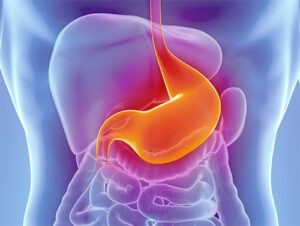It starts as a simple problem but has the potential to get out of hand. The good news, writes Dr. Prasanna Shah, is that acidity can be dealt with easily
It often starts with an unfamiliar feeling of burning discomfort moving from the stomach to the chest, eventually creeping to the throat. Many people experience a sour tasting acid in the mouth (reflux), nausea, belching and heaviness every time they have a meal. We’re talking about acidity, a growing problem so common that everyone has experienced one or more of these symptoms at some point of time or the other. Harvard Medical School has acknowledged acid reflux as the most common digestive malady. But in India, you can blame it on your spicy, oily, unhealthy yet impossible-to-say-no-to delicious Indian food or simply attribute it to bad lifestyle and habits. It starts as a simple problem but has the potential to get out of hand. The good news is acidity can be dealt with easily.
What is acidity?
There are tonnes of digestive health problems. But Acidity, Bloating and Constipation, constitute the ABC of digestive problems, making acidity the most common issue. The gastric glands in the stomach produce hydrochloric acid, a strong acid that helps break down and digest the food we eat. It activates important enzymes and hormones and protects against bacterial overgrowth in the gut. The lining of the stomach is specially adapted to protect it from this powerful acid, but the esophagus is not protected. You experience symptoms of acidity when there is an excess production of acid by the gastric glands of the stomach—the acid and undigested food flows back into the esophagus and mouth, irritating the food pipe, causing heartburn. This can also cause ulcers and cancer in the long run.
Watch out
If you think you suffer from acidity, watch out for these symptoms. Burning sensation or heaviness after every meal, sour belching or regurgitation, where you can taste the sour-bitter tasting acid in your mouth, indigestion, discomfort moving from the stomach to the chest and throat. While it is easy to temporarily quell acidity by popping an antacid, remember, if you leave the cause of acidity unaddressed for a long period of time, it can lead to long term and more serious problems. Prolonged acidity can result in lack of nutrition, as it directly affects the process of digestion. It can also lead to bigger problems such as dyspepsia, gastric inflammation and ulcers in the stomach.
Acidity can be triggered by a number of factors, the biggest one being eating spicy, oily foods, which unfortunately are common in the Indian diet. Irregular eating habits—the especially long gap between meals or skipping meals followed by bingeing–are known to play a huge role in causing acidity. Other factors include stress, smoking, lack of physical activity, excessive intake of tea, coffee, aerated drinks, and alcohol. The most important factor is by a bacterial infection called H Pylori infection
Prevention is better than cure
Here are some simple things you can do to prevent acidity. Chew your food slowly instead of swallowing it quickly. Drink two glasses of water every morning, as it helps maintain acid levels in the stomach as well as improves digestion. Eat smaller meals, at regular intervals. Do not lie down immediately after your meal as this can worsen reflux. Avoid aerated drinks–they cause belching, which in turn, promotes reflux of stomach acid. Also avoid trigger foods, such as spicy, oily dishes, chocolate, coffee, tea, etc.
Grandma knows best
In case you do experience symptoms of acidity, before you rush to pop an antacid, let these tried and tested home remedies, probably recommended by your grandmother, come to your rescue. Drink a glass of cold milk or buttermilk. Both work like an antidote for acidity, cooling the stomach, providing immediate relief from the burning sensation in the stomach. Fruits and vegetables known for their digestive properties, such as banana, papaya, gooseberries, ginger, garlic are known to be very helpful in relieving symptoms of acidity.

Mint leaves (Pudin Hara is actually made of mint extract) are a natural coolant. Boil few mint leaves in water, and drink it after cooling.
Fennel seeds (saunf), commonly consumed after dinner prevent stomach spasms. Having raw cumin seeds (jeera) in warm water improves digestion while carom seeds (ajwain) are also known to treat acid reflux.
Time to seek help
Lastly, if symptoms do not improve despite diet changes, it is time to seek medical advice. Talk to your doctor if you suffer from heartburn several times a week or if you notice a sudden weight loss. You might be given medications such as antacids, which work by neutralizing the acid in the stomach or certain medications that block acid secretion in the stomach. Alarmingly, studies in the US and in India have shown that people who suffer from acid reflux are likely to be predisposed to cancer of the esophagus. Upper Gi endoscopy is a safe n effective diagnostic tool available. Hence one must consider this in case of the above symptoms
Timely treatment can save your life. All mentioned above is important for our elderly and geriatric population





Comments are closed.